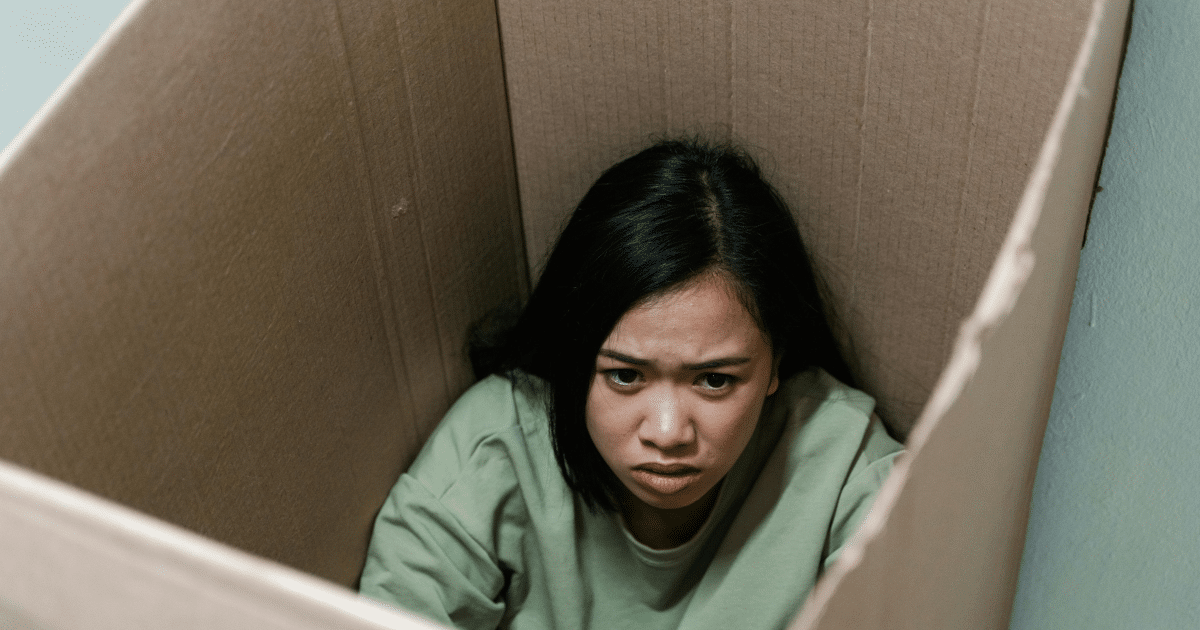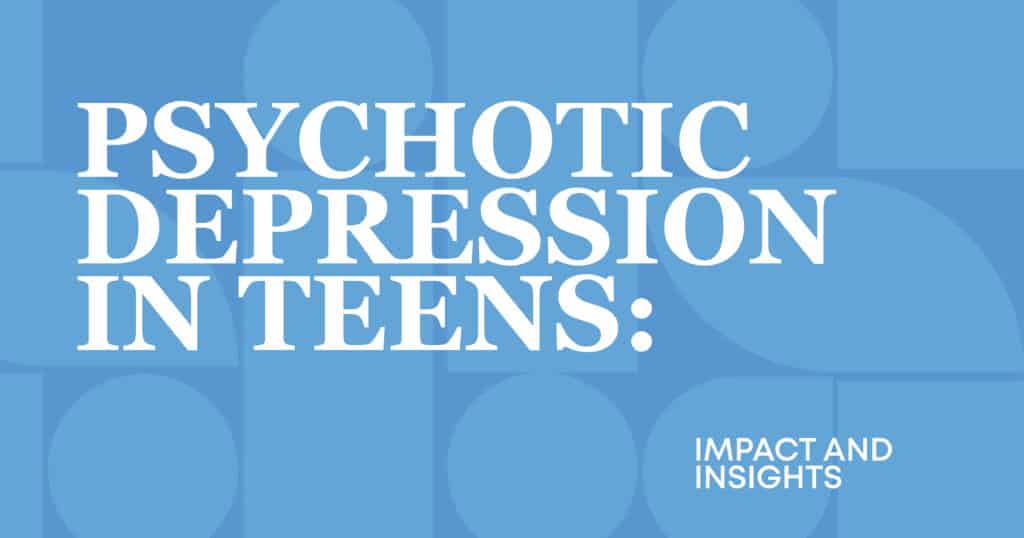Psychotic depression in teens is a severe form of depression where adolescents experience both mood disturbances and psychotic symptoms. This combination of depression and psychosis can significantly affect a teenager’s ability to think, relate to others, and manage daily activities. Parents and educators need to recognize the signs of psychotic depression early, as early intervention can significantly improve treatment outcomes. In this article, we will explore the symptoms, causes, treatment options, and the importance of addressing psychotic depression in teens as soon as possible to support their mental well-being.
Understanding Psychotic Depression in Adolescents
Psychotic depression in teens is a condition that involves a combination of major depression and psychotic symptoms. These psychotic symptoms often include hallucinations or delusions, making the disorder particularly challenging to diagnose and treat. Psychotic depression can cause profound emotional distress and significantly impair a teen’s ability to function in social, academic, and family settings.
Key points to understand about psychotic depression in teens:
- Combination of depression and psychosis. Teens experience both severe sadness and disturbing thoughts or perceptions, such as hearing voices or believing in false ideas.
- Impact on daily life. The condition makes it difficult for teens to engage in daily activities and interact with others.
- Early onset. Teens with this condition often show symptoms earlier than adults, making early detection critical for better management.
Understanding teen depression symptoms and how they intertwine with psychosis is crucial in supporting adolescents who are struggling with mental health issues.
Common Symptoms and Early Warning Signs
Recognizing psychotic depression in teens early can lead to better treatment outcomes. Symptoms often appear gradually, and their severity can vary from one teen to another. However, some key signs can signal the presence of psychotic depression.
Here are some common teen depression symptoms and psychotic symptoms in teenagers:
- Depressive Symptoms:
- Persistent sadness or irritability.
- Loss of interest in activities once enjoyed.
- Fatigue, changes in sleep, or appetite.
- Feelings of worthlessness or guilt.
- Psychotic Symptoms:
- Hearing voices or seeing things that others do not (hallucinations).
- Believing in things that aren’t true (delusions), such as thinking they are being controlled.
- Severe disconnection from reality, trouble concentrating, or confusion.

Early recognition of these symptoms can help initiate timely intervention for teens, reducing the severity and impact of the disorder.
The Importance of Early Intervention for Teen Mental Health
Early intervention for teen mental health is crucial when addressing psychotic depression. The earlier treatment begins, the better the chances of improving mental health and quality of life. Adolescents who receive early treatment can avoid the worsening of symptoms, which may lead to school failure, social isolation, and in some cases, self-harm or suicide.
Here’s why early intervention matters:
- Prevents worsening symptoms. Early diagnosis and treatment can stop the progression of both depressive and psychotic symptoms.
- Improves prognosis. Teens who receive prompt care typically respond better to treatment, leading to better long-term outcomes.
- Reduces the risk of other mental health issues. Untreated teenage mood disorders can lead to additional mental health struggles, such as anxiety or substance abuse.
Intervening early allows teens to return to a healthier, more stable state before the condition significantly impacts their lives.
Effective Treatment Options for Teenage Psychotic Depression
When it comes to psychotic depression in teens, treatment should be comprehensive and tailored to each individual. A combination of medication and therapy is often necessary to help teens manage their symptoms effectively.
Here are the primary treatment options for depression in adolescents experiencing psychotic symptoms:
- Medication:
- Antidepressants. Medications like selective serotonin reuptake inhibitors (SSRIs) are used to treat the depressive aspects of the disorder.
- Antipsychotic drugs. These medications are crucial in managing the psychotic symptoms, such as hallucinations or delusions.
- Psychotherapy:
- Cognitive Behavioral Therapy (CBT). Helps teens challenge negative thinking patterns and develop better coping skills.
- Family therapy. Engaging the family in treatment is essential to address relational issues and support the teen.
Combining medication with therapy offers the best chance for recovery, as both approaches address different aspects of teenage social phobia and psychotic depression.
Supporting Teens with Psychotic Symptoms
Supporting a teen with psychotic symptoms requires patience, understanding, and the right interventions. Parents and educators are key in supporting teens throughout their treatment journey.
Here are a few ways to support teens with psychotic symptoms:
- Create a stable, supportive environment. Ensure that the home environment is calm, predictable, and supportive.
- Encourage open communication. Allow teens to discuss their experiences and fears, providing validation and empathy.
- Monitor progress and setbacks. Track how the teen responds to treatment and discuss any issues with their healthcare provider.
Support from family, friends, and professionals is essential to helping teens manage psychotic depression effectively.
Resources for Mental Health Support in Youth
There are many resources available for teens and their families to find help in managing psychotic depression and other adolescent mental health concerns. Access to the right resources can make a significant difference in a teen’s journey to recovery.
Resources for mental health support for youth include:
- Therapists and counselors specializing in adolescent mental health.
- Community support groups for both teens and parents.
- Helplines like the National Suicide Prevention Lifeline (1-800-273-8255) offer immediate support.
- Online platforms offering self-help tools and virtual counseling services.
Finding and utilizing these resources can help ensure teens receive the help they need for psychotic depression.
Empower Growth Through Learning—Explore Social Cognitive Support at Hillside Horizon for Teens
At Hillside Horizon for Teens, we specialize in offering compassionate support for teens struggling with psychotic depression. Our programs combine therapeutic strategies with practical skills to help teens manage their symptoms, build confidence, and engage with their peers. We understand the challenges of teen depression and are committed to guiding each adolescent toward a healthier mindset and a brighter future.
If you’re looking for support for your teen, contact Hillside Horizon for Teens to learn how we can help.

FAQs
- What are the common teen depression symptoms and signs of psychosis in adolescents?
Teen depression symptoms often include persistent sadness, loss of interest in activities, and fatigue affecting daily functioning. Signs of psychosis may involve hallucinations or delusions, causing confusion and disruption in expected behaviors. It’s crucial to recognize these symptoms early to provide appropriate support and treatment for teens struggling with these conditions.
- How can parents recognize early warning signs of psychotic symptoms in teenagers?
Parents should be vigilant for excessive withdrawal from social activities, increased paranoia, and unusual beliefs or behavior patterns. Significant changes in a teen’s mood or behavior, such as aggression or fearfulness, could indicate psychosis. Early intervention is critical to prevent worsening symptoms and ensure proper treatment for mental health issues.
- What role does early intervention play in addressing teenage mood disorders and adolescent mental health issues?
Early intervention is vital for addressing teenage mood disorders, as it reduces the risk of severe long-term complications. Prompt diagnosis and treatment improve the chances of successful recovery, fostering emotional well-being in teens. This approach helps teens gain better coping skills and reduces the risk of developing more severe mental health issues.
- What are some effective depression treatment options for adolescents experiencing psychotic symptoms?
Effective treatments include a combination of antidepressant medications, antipsychotic drugs, and therapies like cognitive-behavioral therapy (CBT). Medication helps manage mood disorders, while treatment addresses the underlying psychological issues associated with the condition. Combining these methods offers a comprehensive approach to treating psychotic depression in teens and supporting their recovery process.
- Where can families find mental health support for youth dealing with psychotic depression?
Families can access mental health support through qualified therapists, specialized support groups, and mental health hotlines or helplines. Mental health professionals can offer tailored therapy, while helplines provide immediate guidance during crises. At Hillside Horizon for Teens, we offer specialized care, providing teens with the necessary tools and support to recover from psychotic depression.




